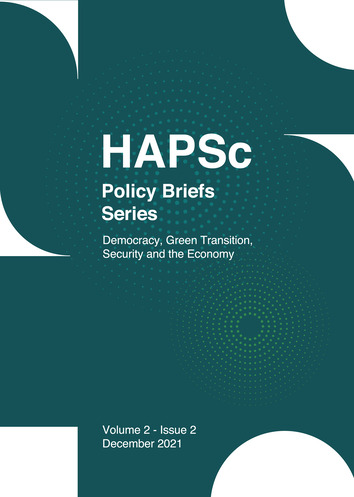Greece and Nuclear Weapons: An Assessment
Abstract
This paper tries to answer the question on whether the acquisition of nuclear capabilities will serve the interest of the Greek state. The issue is approached by the exploration of Greek strategic constraints in correlation with the properties of nuclear weapons and the indexing and examination of the most important incentives and disincentives that influence a state’s decision to develop nuclear capabilities. Then, the Greek case is analyzed through the theoretical framework that was presented by Nuno P. Monteiro & Alexandre Debs in 2014, in order to examine if the process of developing weapons is a worthwhile endeavor based on its effects on Greek security. It is concluded that the development of nuclear weapons would serve the Greek interests, but there are practical reasons that render it nearly impossible for the foreseeable future.
Article Details
- Come citare
-
Kollaros, P. (2021). Greece and Nuclear Weapons: An Assessment. HAPSc Policy Briefs Series, 2(2), 172–185. https://doi.org/10.12681/hapscpbs.29504
- Sezione
- Articles

TQuesto lavoro è fornito con la licenza Creative Commons Attribuzione 4.0 Internazionale.
Authors retain copyright and grant the journal right of first publication with the work simultaneously licensed under a Creative Commons Attribution License that allows others to share the work with an acknowledgement of the work's authorship and initial publication in this journal.


